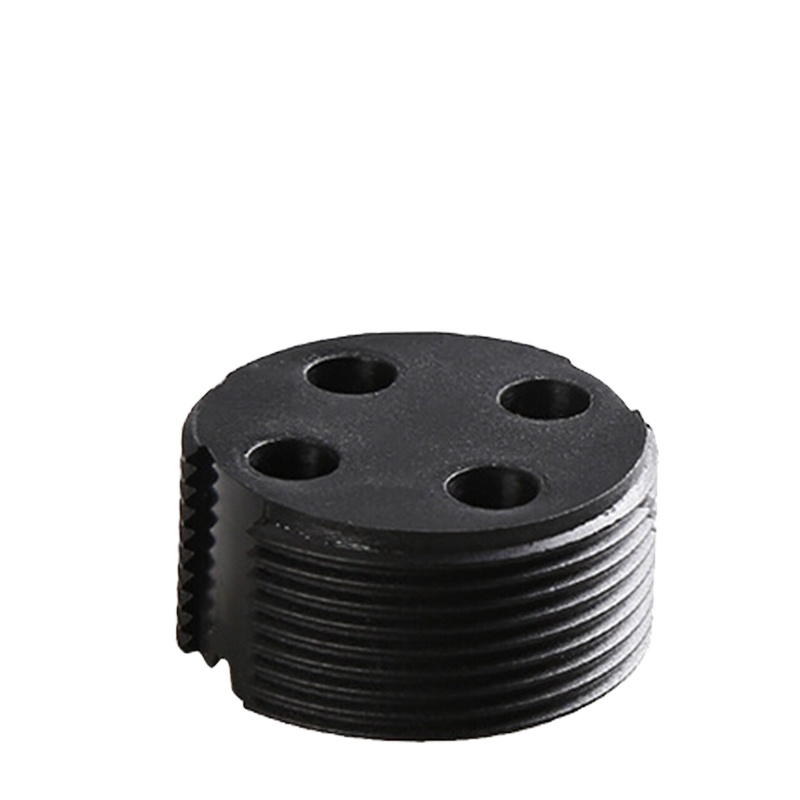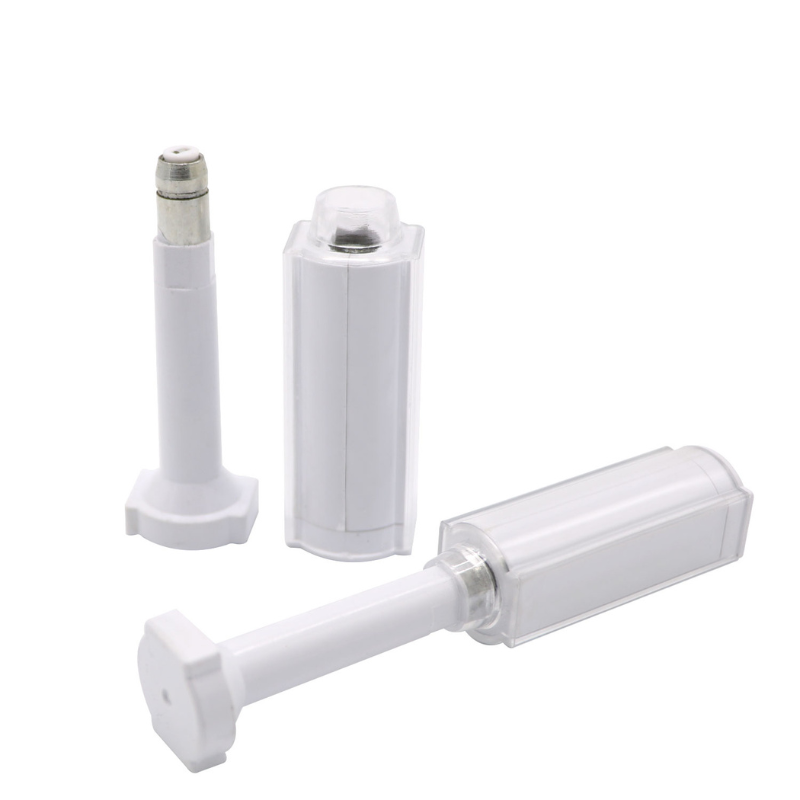
Advancing Solar Energy Management: The Role of RFID Solar Tags
Table of Contents
Summary
In line with the guidelines set by the Ministry of Non-Renewable Energy (MNRE) in India, each solar panel must be equipped with a Radio Frequency Identification (RFID) tag. This mandate ensures precise identification and tracking throughout the lifecycle of solar assets, paving the way for improved performance and streamlined operations.
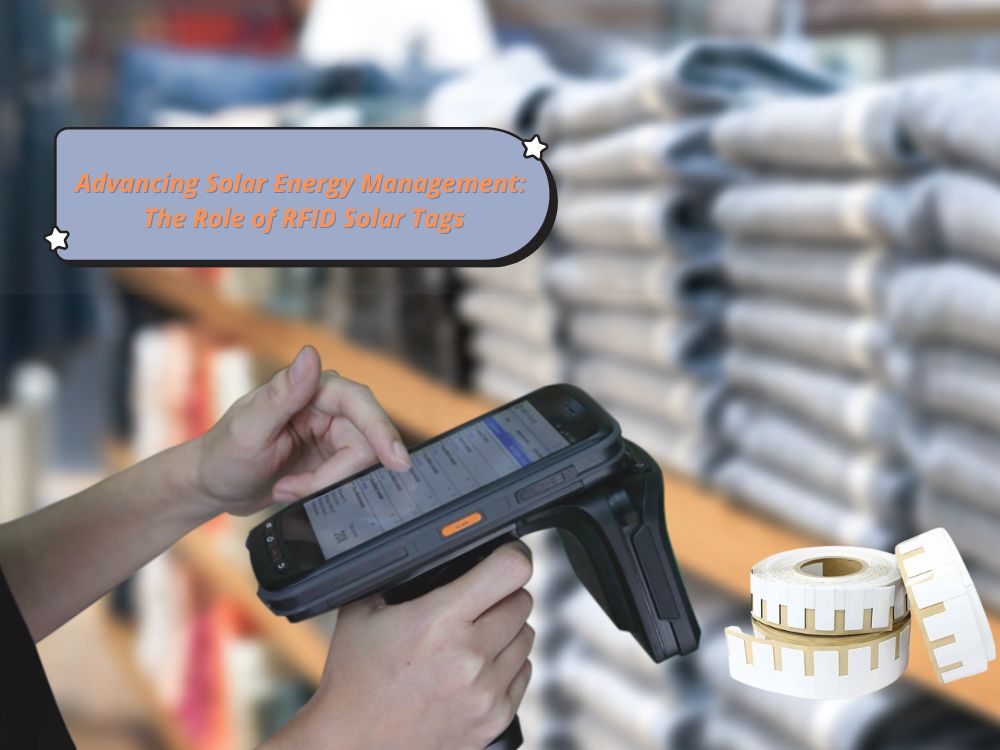
The Impact of RFID Technology in Solar Plants
RFID solar tags, such as those provided by Perfect-ID, have revolutionized the way solar plants manage assets and monitor performance. From real-time tracking of equipment to enhanced security measures, RFID technology is playing a pivotal role in transforming solar energy management.
RFID Solar Tags for Asset Tracking and Management
Efficient asset management is the backbone of successful solar plant operations. RFID solar tags enable precise tracking of solar modules, inverters, and other equipment, allowing for quick identification and location of assets. This real-time visibility facilitates maintenance processes, reduces downtime, and ensures the optimal functioning of the solar plant.
RFID Solar Tags for Inventory Control
In vast solar farms, maintaining accurate inventory records can be challenging. RFID technology automates inventory control, providing instant visibility into the status of solar modules. This automation helps prevent overstocking or stockouts, leading to cost savings and improved productivity.
Preventive Maintenance
Proactive maintenance is essential for maximizing the lifespan of solar modules. RFID solar tags enable predictive maintenance strategies by monitoring the performance of individual modules. By identifying potential issues in real time, maintenance teams can address problems before they escalate, minimizing downtime and enhancing overall efficiency.
RFID Solar Tags for Access Control and Security
Security is a top priority in solar plants, and RFID technology contributes significantly to access control. By implementing RFID-enabled access systems, only authorized personnel can enter restricted areas. This not only protects valuable equipment but also ensures the safety of workers and maintains the integrity of the solar plant.
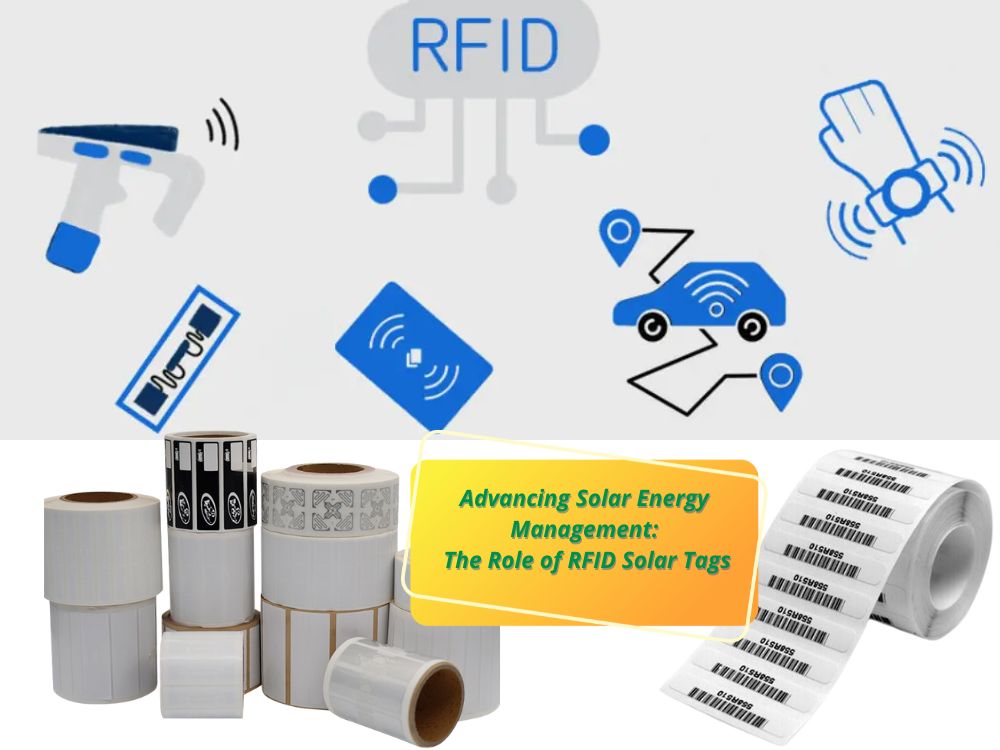
Anti-Theft Measures
Solar panels are valuable assets and, therefore, susceptible to theft. Embedding RFID solar tags within the panels allows for easy identification and tracking in case of theft. This serves as a deterrent and aids in the swift recovery of stolen equipment, safeguarding the investment in solar infrastructure.
Integrating RFID with Smart Grids and Data Analytics
RFID technology offers more than just asset management and security. Its integration with smart grids and data analytics platforms provides a dynamic approach to energy management and optimization.
Smart Grid Integration
RFID technology facilitates seamless integration with smart grids, enabling solar energy production to be optimized based on real-time demand. This ensures efficient energy distribution and contributes to a more stable and reliable power grid, aligning with modern energy management strategies.
RFID Solar Tags for Data Monitoring and Analytics
RFID tags generate valuable data that can be leveraged for comprehensive analytics. By collecting and analyzing information on solar module performance, energy production, and environmental conditions, operators can make informed decisions to enhance overall system efficiency.
Key Benefits and Features of RFID Solar Tag
RFID technology brings a host of benefits to solar energy management, from improved inventory control to enhanced security and data-driven decision-making. The table below highlights the key features and benefits of Perfect-ID RFID tags used in solar plants.
Feature | Benefit |
Real-time inventory management | Instant visibility and reduced manual errors |
Predictive maintenance capability | Minimizes downtime and extends equipment lifespan |
Enhanced security and access control | Safeguards assets and ensures personnel safety |
Smart grid integration | Optimizes energy production based on real-time demand |
Data analytics integration | Informed decision-making for improved efficiency |
Compliance with MNRE Guidelines | Ensures regulatory adherence and operational reliability |
Durability in harsh environments | Long-term performance with UV protection |
Extensive memory and security features | Secure data storage and unique identification |
Conclusion
RFID technology, particularly through the use of solar tags like those offered by Perfect-ID, is revolutionizing the management of solar plants. By enhancing asset tracking, security, and data-driven decision-making, RFID technology ensures that solar energy remains a key player in the quest for sustainable and efficient energy solutions.
Comments
Hot Products
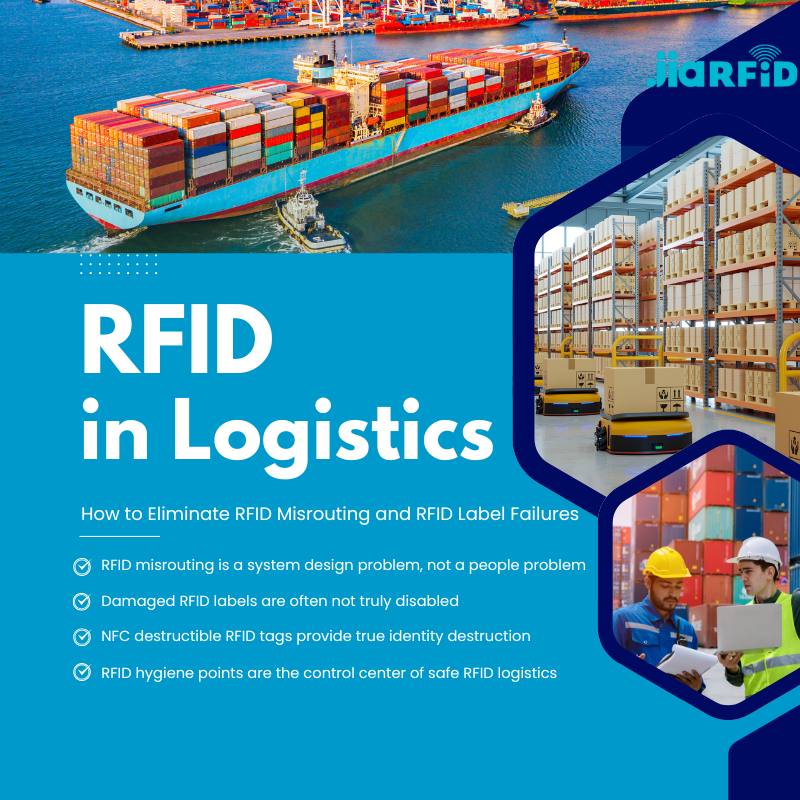
RFID in Logistics: How to Eliminate RFID Misrouting and RFID Label Failures
RFID in logistics is more than just a tool to speed up processes. It has become a key part of how modern supply chains operate.
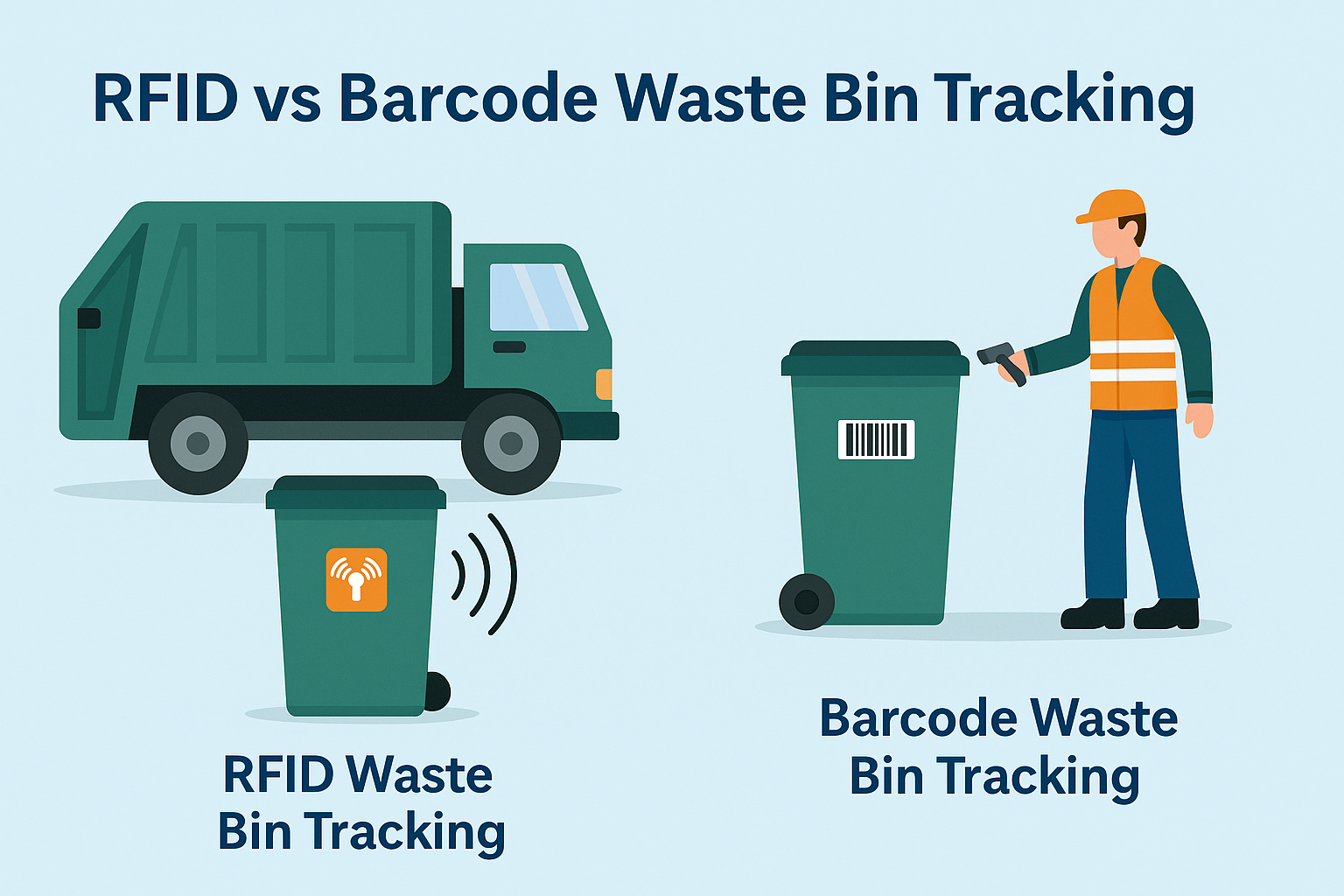
What Is RFID Waste Management
Imagine a city where every trash bin speaks — not literally — but through a tiny chip that tells the system when it’s full, when it’s emptied, and where it went. That’s what RFID waste management is doing today.
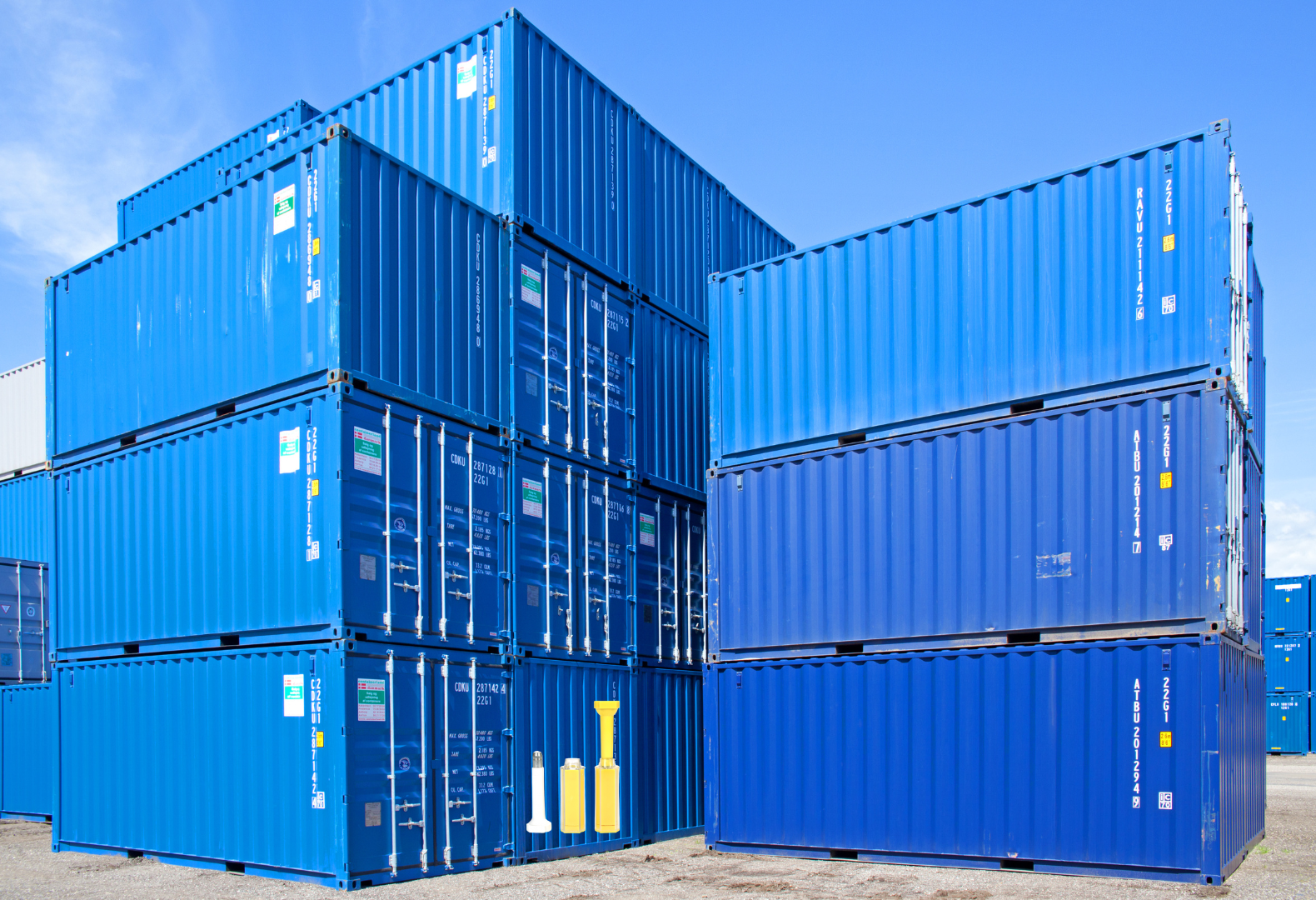
What are Bolt Seals and their Applications? | Complete Guide
In global trade and logistics, bolt seals play a crucial role in ensuring cargo security and compliance. These small but powerful devices are designed to lock shipping containers, trailers, and cargo doors with a tamper-evident mechanism.
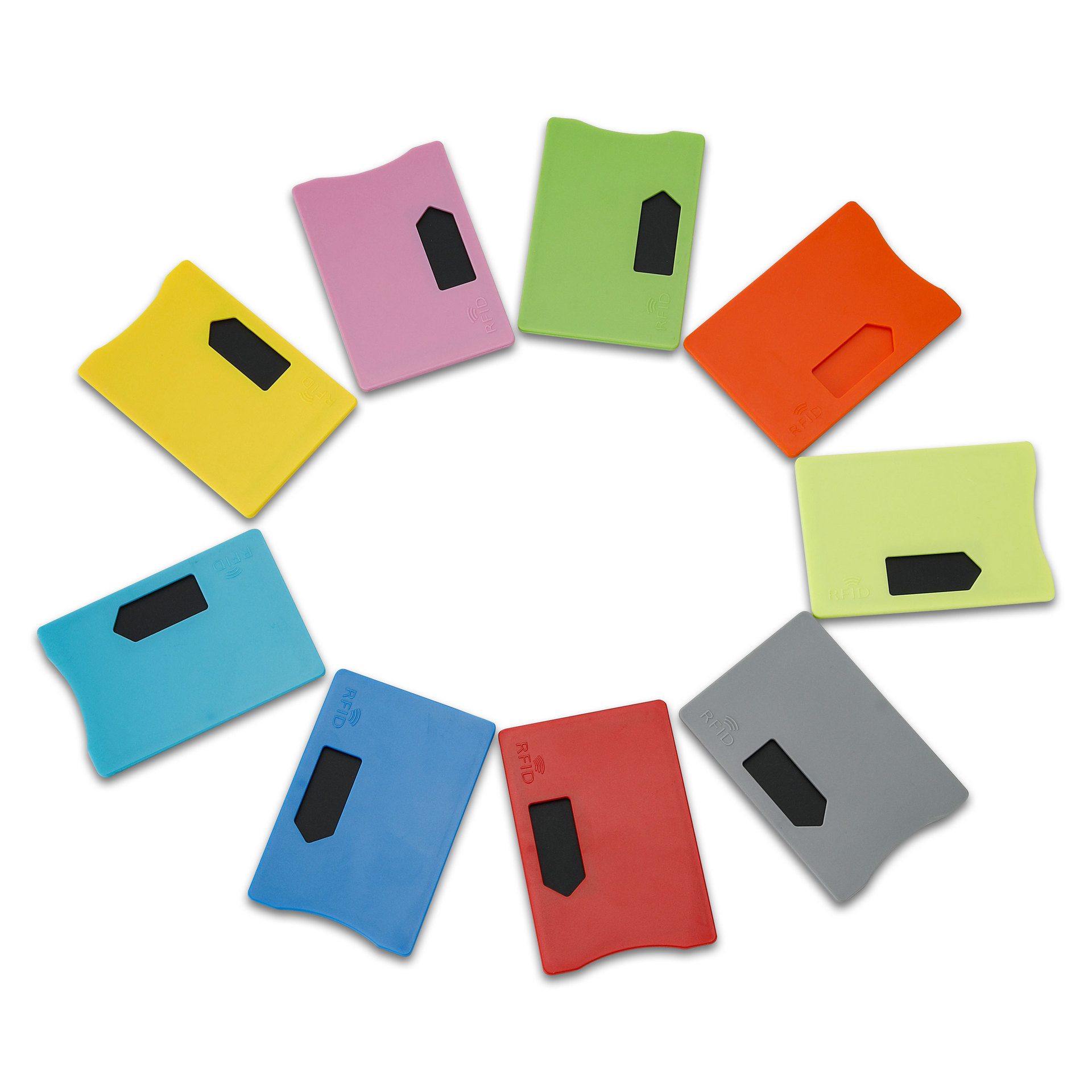
What is an RFID Card Protector? Benefits, Use Cases, and Buying Guide
RFID technology (Radio Frequency Identification) is everywhere: in your credit cards, ID badges, transit passes, hotel room keys, and more. It offers speed and convenience, but it also opens the door to a new kind of digital theft called “skimming.” That’s where an RFID card protector comes in.

RFID Wristbands for Events: Bulk Buying Guide for Organizers
RFID wristbands for events are becoming the go-to solution for organizers who need faster entry, fraud prevention, and cashless payments at concerts, festivals, and sports venues. Unlike paper tickets or QR codes, these smart wristbands use embedded chips to streamline access, secure transactions, and improve the guest experience.
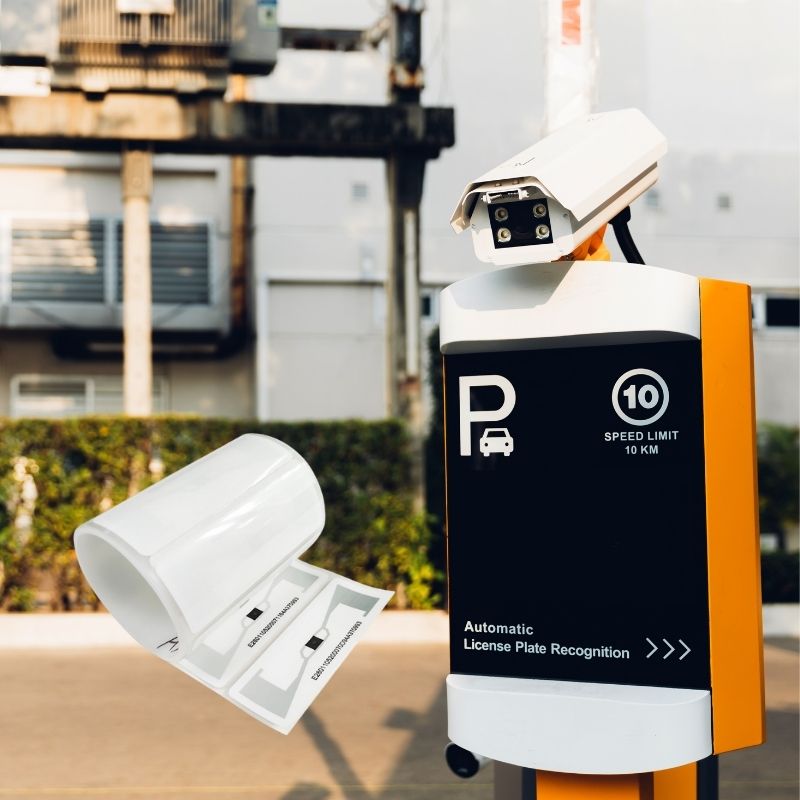
How RFID Tag on Windscreen Improves Vehicle Access Control and Toll Systems
In today’s fast-paced world, vehicle identification needs to be quick, secure, and contactless. An RFID Tag on the Windscreen provides exactly that — a reliable way to manage toll collection, parking, and gated access without stopping vehicles.
Tags
RELATED BLOGS

RFID in Logistics: How to Eliminate RFID Misrouting and RFID Label Failures
RFID in logistics is more than just a tool to speed up processes. It has become a key part of how modern supply chains operate.

What Is RFID Waste Management
Imagine a city where every trash bin speaks — not literally — but through a tiny chip that tells the system when it’s full, when it’s emptied, and where it went. That’s what RFID waste management is doing today.

What are Bolt Seals and their Applications? | Complete Guide
In global trade and logistics, bolt seals play a crucial role in ensuring cargo security and compliance. These small but powerful devices are designed to lock shipping containers, trailers, and cargo doors with a tamper-evident mechanism.


